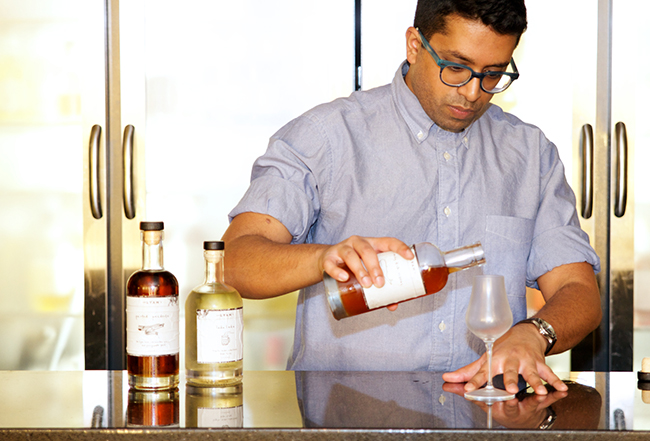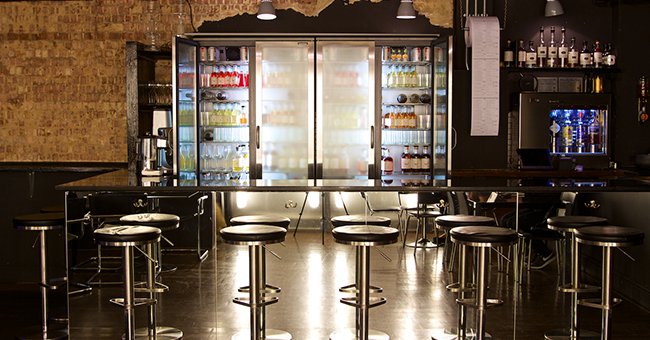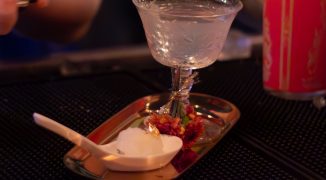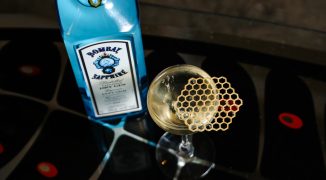2015 ended on a hopeful note, with representatives from 195 nations gathering for the United Nations Conference on Climate Change in Paris. There, they reached a historic accord — nearly all the world’s nations committed to reducing emissions and carbon output to keep global warming below two degrees Celsius. As many of us consider what we can do to partake in changes for sustainability, conscientious and innovative bar owners are setting an example behind the bar.
San Francisco’s Elixir was the first certified green bar in America, a title it gained in 2006. Owner H. Joseph Ehrmann was at the forefront of what he saw as an equal parts easy and totally necessary change.
“I’ve always said that if the bar industry could set norms and break patterns, we can be a role model for so many others. It’s actually easy for the bar business to be low impact,” Ehrmann says. “It just takes a matter of sustained focus on changing the way things are done operationally, and then you’ll never look back.”
Prior to his bar’s certification, Ehrmann was hosting a green business happy hour at Elixir, a chance for business owners interested in sustainability to rub elbows and exchange ideas for feasible, meaningful change. When he heard about the SF Green Business program, it was an obvious chance to implement what he’d learned.
Ehrmann attends to every aspect of their bar and building to cut down on waste and to conserve energy. They compost or recycle most of what waste is produced and very little makes its way to the landfill (this is possible, in part, thanks to San Francisco’s infrastructure, which is well ahead of most of the country in terms of promoting and mandating sustainable practices). To cut back on water usage, they use low flow toilets and faucets and they make efficient use of ice. The menu is equally conscientious, using ingredients that are local, organic and sustainably produced whenever possible. At this point, his efforts are second nature.
“To be honest, I don’t even think of any of these things as ‘green’ anymore,” he says. “It’s just the way we’ve done it for a decade now.”
Ehrmann has made strides to be sustainable that are easily replicated in most any home or business, and that’s what he hopes guests take away from a visit at Elixir.
“All people have to think this way. We have to make monumental changes to the way we do things, in very short order,” he says.
Across the pond, Ryan Chetiyawardana is making big waves in bar sustainability. Believe it or not, his bar White Lyan functions with no ice and no perishable ingredients or garnishes. Instead, all of the cocktails at White Lyan are created with housemade spirits and bottled beforehand to reduce waste drastically. The bottles are then cleaned and reused — everything else gets recycled.
 To eliminate using ice and perishables, cocktails at White Lyan are pre-made in batches and served from bottles.
To eliminate using ice and perishables, cocktails at White Lyan are pre-made in batches and served from bottles.
To some members of the bartending community, White Lyan’s concept seemed too radical, but for Chetiyawardana, it was important to question the way things were done.
“… We have a wonderfully ancient craft, but no one ever challenged the status quo or asked if there were other ways of doing things, which I think is dangerous,” says Chetiyawardana. “From a geek side, and my belief that we should blur the boundaries between a restaurant and a bar, I wanted to also control everything within the bar to be less wasteful, and to be able to put forward something we were really proud of and could hand-on-heart say we’d considered in every possible way.”
When the bottled cocktails are batched beforehand, Chetiyawardana and his team have the opportunity to use precise measurements and prep only what is needed for the bottle, versus, for example, having 10 limes and housemade ginger beer on hand in case several guests order a mule, etc. This behind the scenes prep work also permits the White Lyan team to take diligent care of every detail: they even go so far as to filter and re-mineralize the water that’s used to make the spirits, dilute the cocktails and serve at the bar.
The bottled cocktails are kept in refrigerators, maintained at a precise temperature to ensure that each cocktail is poured at the optimal degree of chilled every time. And although cutting back waste was one of Chetiyawardana’s primary objectives, he also made these changes to spend more time paying attention to the guest, rather than intensively preparing a cocktail in front of them.
“Lots of venues were paying lip service to the idea of creating fun and hosting, but then shoot their bartenders in the foot with the setup of the bar, whereas because this was the outlook of the bar from the beginning, we created a concept that allowed us to focus on looking after our guests,” he says.
Chetiyawardana is proud of the progress made at White Lyan, but it’s not just about what he’s doing — it’s about the larger conversation. “Within everything we do, it’s about inspiring or stimulating a discussion. We do what we do, but we’ve never suggested it’s the best way. If we get someone to think on or look at something differently, then hopefully they’ll challenge and question what surrounds them in an attempt to make it work better.”
Since the first watering holes of history — bars have been venues where change is considered, possibilities are imagined and important conversations are catalyzed. Consider implementing changes at your bar to promote the wider uptake of sustainability efforts everywhere. It begins with things as simple as recycling and composting, but who knows! Don’t be afraid to question the status quo and innovate for a brighter, greener future.




